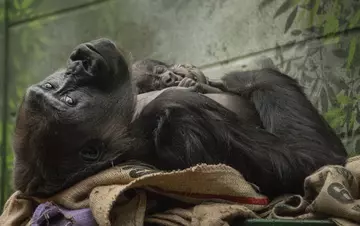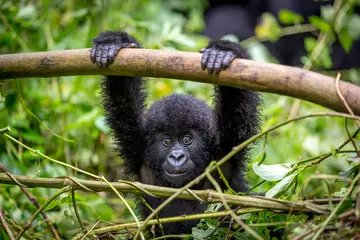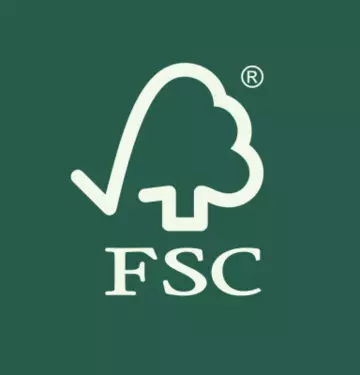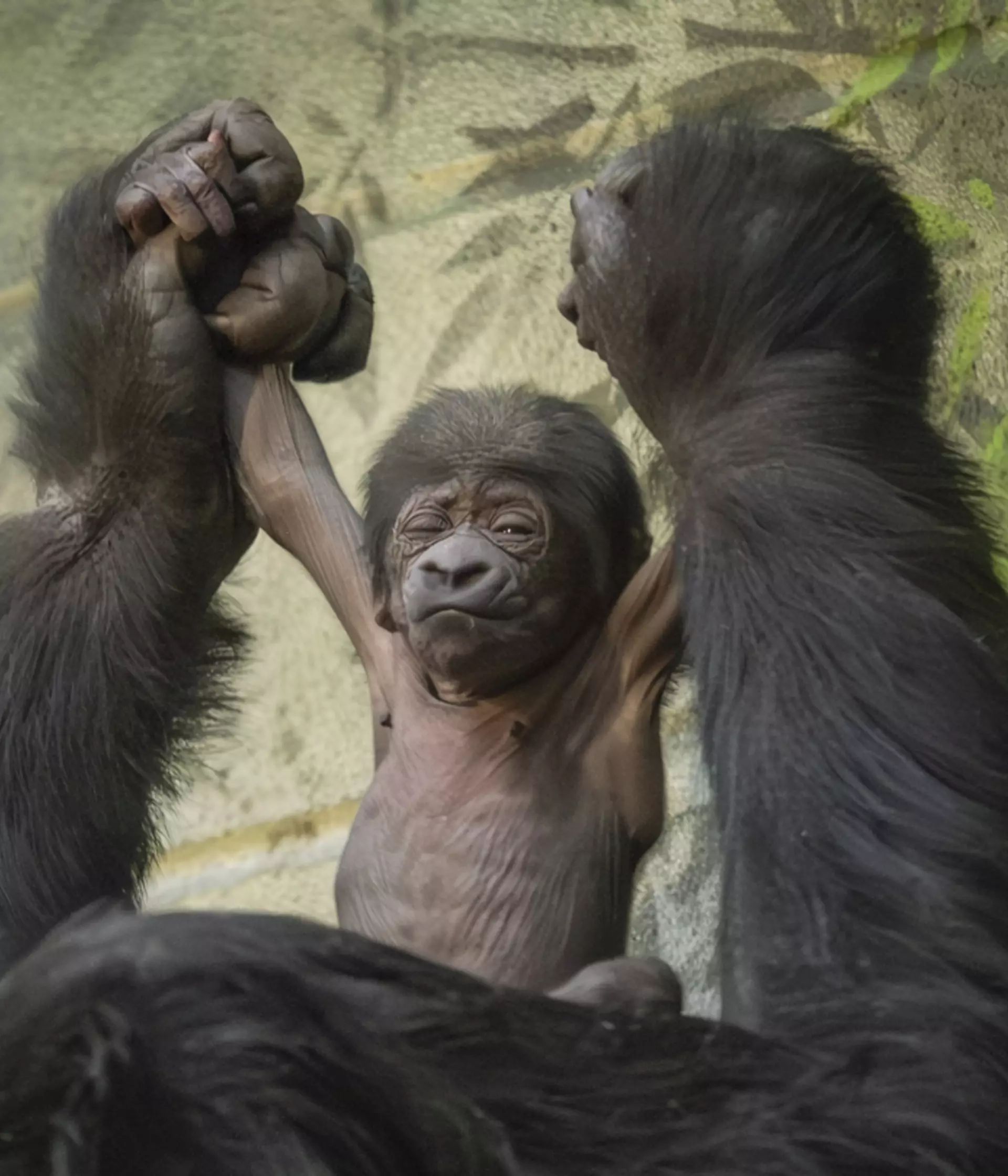
Help gorillas like Kiburi and the troop out in the wild
We’re thrilled to have welcomed two baby gorillas to the troop, but baby gorillas in the wild face an uncertain future, with all four subspecies under threat from extinction. Thankfully though there are easy ways you can help contribute to safeguarding gorilla families out in the wild.

Hold on to your electronics for longer
Mining for minerals used in our mobile, laptops and cameras is a huge driver of gorilla habitat loss. Vast mines are built in the lush rainforests gorillas and communities live within, and many are operated illegally with a huge cost for both people and wildlife.
Over 50% of eastern lowland gorillas have been lost since the 1990s because of the demand for coltan that is used in lithium iron batteries. While the mines are also devastating for the people living alongside wildlife, as communities are exposed to toxic metals and human rights abuses.
By holding onto our electronics for longer and recycling our old ones, we can help protect gorillas and the communities that live alongside them. Find out where you can recycle your old electronics.
Purchase RSPO certified sustainable palm oil products
The impact palm oil can have on orangutans has become well-known, and this same threat is now becoming a risk for gorillas. As demand continues to grow, companies have begun growing palm oil in African countries which could impact gorilla habitats.
Palm oil has amazing flexibility that has led to it being used in half of all supermarket products including soaps, frozen pizzas and ice cream. This isn’t necessarily bad news, oil palms are 10 times more productive than other types of vegetable oils so use less land and plantations have potential to provide millions of jobs.
But ensuring the palm oil you buy is sustainable is key, and by purchasing products with the RSPO label you’ll be helping ensure the product you buy isn’t from deforested gorilla habitat. RSPO have faced criticism for their low-certification standards, but it’s currently the best way to quickly check before you buy and help protect gorilla troops in the wild.
Tackling climate change
The climate crisis is a huge threat to each gorilla subspecies, as higher temperatures and droughts can disrupt the precious lush rainforests they live in.
Mountain gorillas get most of their water from the plants they eat, but since 1950 temperatures in Uganda have risen at a rate of nearly a quarter of a degree Celsius per decade. As temperatures increase plants with high moisture levels are shifting to different altitudes. This means gorillas are becoming more reliant on free-standing water, which puts them at higher risk of being exposed to parasites and human diseases, while in their small habitats water isn’t always guaranteed.

Mountain gorillas are now more likely to come down to the lower parts of the mountain more often, feeding on farmers banana trunks and putting themselves at risk of human-wildlife conflict. Increases in temperature are also putting communities living with wildlife at higher risk of disease, as diseases like malaria are becoming more common due to climatic changes and growing mosquito numbers. This all compounds problems for both people and wildlife because both gorillas and people are vulnerable to the same diseases.
By taking small steps to tackle climate change, whether through reducing meat consumption through or holding corporates to account, you will be helping secure a future with gorillas.
Support us at ZSL
Through ZSL we’re working together with communities in the Dja to safeguard over 2 million hectares of gorilla habitat. The Dja in Cameroon is a UNESCO world-heritage site and people have been living with wildlife there for thousands of years. Extractive industries looking to exploit the rainforests are now looking to move in, but we’re working to empower local people to protect their home and the wildlife they live alongside.
By working together we’ve established community surveillance networks that help protect the forests from illegal logging, mining and poaching. While by creating schemes for people to upskill and move into sustainable careers, we’re providing opportunities to help transform people’s lives with the added benefit of protecting wildlife. We also led the first ever survey of western lowland gorillas in the area in the Dja, helping us continue to safeguard gorillas in the area.
Set-up a regular donation with us from as a little as a few pounds a month, to help protect gorillas out in the wild.
Purchase FSC labeled products
By purchasing FSC certified products you can help ensure the products you buy have been sourced from well-managed forests. Timber extraction is a big problem in the West Congo basin, home to many western lowland gorillas, and most of their habitat loss is the result of commercial logging.

Although the certification isn't always perfect, through choosing FSC products you are strengthening sustainably protected areas and other threatened species in gorilla habitats.
